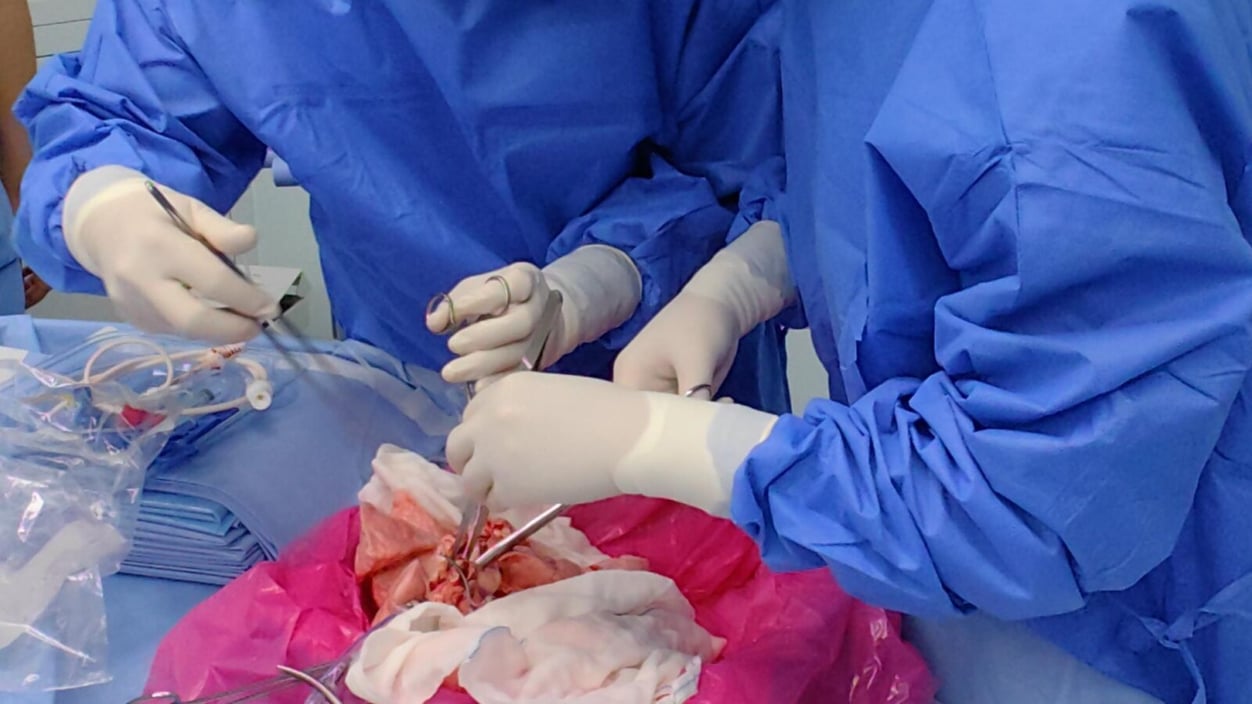science
The first lung transplant from a pig

Courtesy He et al., Nature Medicine
A 39-year-old brain-dead person in China has become the first human to receive a lung from a pig. With consent from their family, researchers took the organ from a CRISPR'd pig, trimmed it, and stitched it into their chest, where it remained for nine days, STAT's Megan Molteni reports.
The goal of the procedure was to test whether gene-edited pigs could one day be used to supply hospitals for transplants. In the newly resurgent field of xenotransplantation, surgeons in the U.S. have transplanted pig hearts and kidneys into both living patients and people who had been declared clinically dead because they lacked brain function. Last year, doctors in China became the first to attempt a similar procedure with a liver from a pig. But this is the first time anyone has tried with a lung — read more about it.
public health
A major school lunch bill is on the menu in CA
This week, the California Senate appropriations committee is set to vote on a bill that would crack down on ultraprocessed foods in schools. If it passes, it would mark a milestone in the latest push for U.S. nutrition reform — the Golden State serves nearly 1 billion school meals each year — and could lead to similar laws in other parts of the country. The TL;DR is this: Assembly Bill 1264 would require the state to define "particularly harmful ultraprocessed food," and then require schools to get rid of those foods by the start of 2028. It would also prohibit food vendors from selling those products to schools by 2032, and track what schools are buying.
Giving kids better, healthier meals seems to be one area where most people agree: The bill is backed by the American Academy of Pediatrics (which recently snubbed RFK Jr. on vaccine recommendations), the MAHA-aligned organization End Chronic Disease, the Environmental Working Group (also critical of Kennedy), and other nutrition-reform advocates. — Isabella Cueto
infectious disease
What you need to know about screwworm (sorry)
A person who traveled to El Salvador has been diagnosed with New World screwworm — the first reported U.S. case tied to travel to a country with a current outbreak. Screwworm flies lay eggs in open wounds and openings in the body including eyes, ears, nose, and mouth. Like a screw twisting into plywood, the parasitic maggots then twist into the body, feeding as they go and posing a major threat to the unlucky host.
The resulting infection, which can be deadly, is rare in humans and cannot be spread from person to person. It's endemic in countries in South America, but cattle infestations have been moving north through Central America and Mexico. The CDC is working with the U.S. Agriculture Department to prevent further spread, officials told the AP. Read more.


No comments